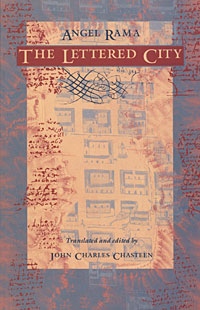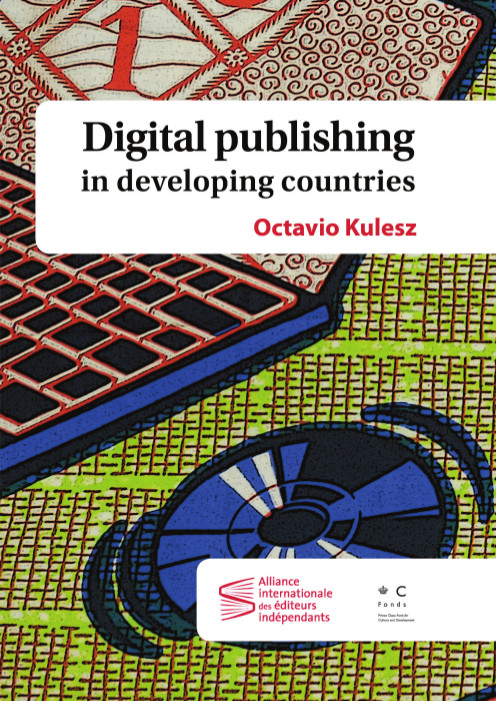Néstor García Canclini: Hybrid Cultures: Strategies for Entering and Leaving Modernity (1990–) [ES, EN]
Filed under book | Tags: · anthropology, art, craft, cultural studies, hybridity, latin america, modernity, popular culture, postmodernism

“When it was originally published, Hybrid Cultures was foundational to Latin American cultural studies. This now-classic work features a new introduction in which Néstor García Canclini calls for a cultural politics to contain the damaging effects of globalization and responds to theoretical developments over the past decade.
García Canclini questions whether Latin America can compete in a global marketplace without losing its cultural identity. He moves with ease from the ideas of Gramsci and Foucault to economic analysis, from appraisals of the exchanges between Octavio Paz and Jorge Luis Borges to Chicano film and graffiti. Hybrid Cultures at once clarifies the development of democratic institutions in Latin America and reveals that the most destructive ideological trends are still going strong.”
Publisher Grijalbo, México, 1990
ISBN 9700505626
391 pages
English edition
Foreword by Renato Rosaldo
Translated by Christopher L. Chiappari and Silvia L. Lopez
University of Minnesota Press, 1995
New edition, with a New Introduction, 2005
ISBN 9780816646685
293 pages
Reviews: Jesús Martín‐Barbero (Travesia, 1992, EN)
Arnaldo Valero (Actual, 1994, ES), Ileana Rodríguez (Journal of the Midwest Modern Language Association, 1997, EN), Jesús Martín Barbero (Dominical, 2001, ES), Ivanilton Jose de Oliveira (Redalyc, 2007, ES).
Commentary: Anderson Moebus Retondar (Sociológica, 2008, ES), Luis Pulido Ritter (Cuadernos Inter.c.a.mbio, 2011, ES).
Wikipedia (ES)
Author (ES)
Publisher (EN)
Worldcat (ES)
Worldcat (EN)
Culturas híbridas. Estrategias para entrar y salir de la modernidad (Spanish, 1990, 19 MB)
Hybrid Cultures: Strategies for Entering and Leaving Modernity (English, new ed., 1995/2005, 19 MB, updated on 2022-9-22)
Angel Rama: The Lettered City (1984–) [Spanish, English]
Filed under book | Tags: · city, education, history, history of literature, language, latin america, literary theory, literature, space

“Angel Rama’s La ciudad letrada was published in 1984, shortly after he had died in a plane accident in Spain. Since then, it has quickly established itself as one of the most daring, perspicacious and innovative analyses of Latin American history, literature and political culture. However, because it was not completed due to his untimely death, the book was an incomplete synthesis of several decades of literary criticism and history. Even if Rama had not written La ciudad letrada, his place on the canon of Latin American letters would have been secured by his pioneering work on intra-American comparative literary studies. Rama, appropriating a term from Cuban anthropologist Fernando Ortiz, introduced into Latin American literary studies the term ‘transculturation’, which sought to conceptualize the interaction between indigenous, criollo and mestizo cultures in Latin America, and in this way he gave a hermeneutic key for unlocking many key texts of Latin American letters.
Rama’s book is surely about letters, literature and writing, but it is also about cities, space, spatialization and the relationship between the syntax of languages and the order of space. The book is, in fact, what one may call a philosophical-historical-cultural essay that uses literature and the ‘writer’–el letrado–to elaborate a wide-ranging interpretative thesis about Latin America as a cultural unit. Its genre is thus not a literary theory, comparative literature, or even cultural studies, even if it contributes to these. In German one calls this genre Geistesgeschichte, which is neither a spiritual nor an intellectual history, but rather a history of the animating logic of a culture.” (from a review by Eduardo Mendieta, City, 2006)
First published by Ediciones del Norte, Hanover/NH, 1984
With an Introduction by Hugo Achugar
Publisher Arca, Montevideo, 1998
ISBN 9974400244
126 pages
English edition
Translated and with an Introduction by John Charles Chasteen
Publisher Duke University Press, 1996
ISBN 0822317575, 9780822317579
141 pages
via Oral Majority
Commentary (Cora Gorman Malone, 2010, in EN)
Commentary (Brantley Nicholson, 2011, in EN)
Publisher (EN)
La ciudad letrada (Spanish, 1984/1998, 6 MB, no OCR)
The Lettered City (English, pages 40 and 56 missing, 1996, 9 MB, no OCR)
Octavio Kulesz: Digital Publishing in Developing Countries (2011) [English/French/Spanish]
Filed under report | Tags: · africa, china, e-book, india, latin america, middle east, publishing, russia

E-books, print on demand, online sales sites, the boom in mobile phones… new technologies are profoundly transforming the way texts circulate. Developing countries, however, which face serious limitations in infrastructure, have a considerable challenge ahead of them.
What new actors are emerging in the countries of the South, outside of the powerful platforms already existing in the US, Europe and Japan? Is it conceivable that there may be an autonomous evolution of digital publications in developing countries, entirely independent of the richest nations? What support policies could be implemented to promote the growth of this new industry and accompany traditional actors in the process of adapting to the changes involved?
The digital experiences undertaken in the South suggest that new technologies represent a great opportunity for developing countries – particularly in terms of diffusion –, but on the condition that local entrepreneurs seek out original models adapted to the concrete needs of their communities.
This study was carried out by Octavio Kulesz (Editorial Teseo and Digital Minds Network) in October 2010, and commissioned by the International Alliance of Independent Publishers, with the support of the Prince Claus Foundation.
ISBN 9782951974760 [EN]
156 pages
via Marcell Mars
Download PDF, EPUB, MOBI [English]
Download PDF, EPUB, MOBI [French]
Download PDF, EPUB, MOBI [Spanish]

